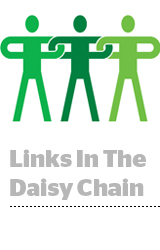 Even if Google registers its entire product stack with the IAB Europe Transparency and Consent Framework (TCF), there will still be important differences between Google’s GDPR solution and the programmatic ecosystem.
Even if Google registers its entire product stack with the IAB Europe Transparency and Consent Framework (TCF), there will still be important differences between Google’s GDPR solution and the programmatic ecosystem.
Google has a huge advantage because of its end-to-end status in the online supply chain, said Blake Brannon, VP of product at the privacy management software company OneTrust.
While the TCF is backed by the entire ad tech ecosystem and has added more than 15,000 publishers in the past month, most EU traffic doesn’t carry its consent signals, and traffic that does often passes along a rejection.
While the IAB Europe spends months getting publishers on board and vendors aligned with its technology, Google’s GDPR “framework” has full coverage across its publisher base since it essentially gained consent through an update to its terms of service, Brannon said.
Operating on both buy and supply sides is also an advantage, said AppNexus product VP Steve Truxal.
Publishers and brands want simple, contractually bound supply chains because they are now liable for how their data is used by an intermediary.
And since third-party vendors must be listed in publisher consent pop-ups, Truxal said many sites want to work with as few intermediaries as possible to improve opt-in rates, benefitting companies that fill multiple supply chain roles.
Also, the TCF’s more granular publisher controls may make it more difficult to collect consent, according to multiple CMP vendors and media companies that work with both Google and the TCF.
Google’s default consent set-up uses a “yes or no” prompt while the IAB framework has more flexibility for publishers and browsers to slice and dice consent for certain vendors or marketing use cases, said Romain Job, product chief of the Paris-based supply-side tech company Smart.
Publishers may prefer to offer readers – subscribers in particular – fine-tuned controls over their data even if it means a lower rate of consent being passed to ad tech partners.
But still, advantage Google.
“The user experience flow is key in collecting consent and Google seems to have optimized that toward consent very effectively,” Job said.
Another advantage for Google in gaining opt-in data under GDPR is its unique designation as a data co-controller. Unlike vendors in the TCF, Google has a huge consumer-facing business where it draws first-party data and consent.
Mingling Google’s own insights with first-party publisher data enables some of its sophisticated monetization tools, like dynamic price floors in private auctions.
Being a co-controller, or an “independent controller,” gives Google full controller rights over data and means it can unilaterally use audience data for some Google products.
By joining the IAB Europe framework, Google will bring a much-needed wave of publishers and opt-ins to the ad tech industry. But it won’t change the advantages Google has realized over programmatic would-be contenders since GDPR went live last month.
This post was syndicated from Ad Exchanger.

More Stories
2025 Media Plan of the Year Jury announced
Streaming Ratings, Week of March 24: Shonda Rhimes’ The Residence Reaches First Place
CPGs Talk Tariffs, Price Hikes, and Marketing Budgets as Consumer Confidence Drops